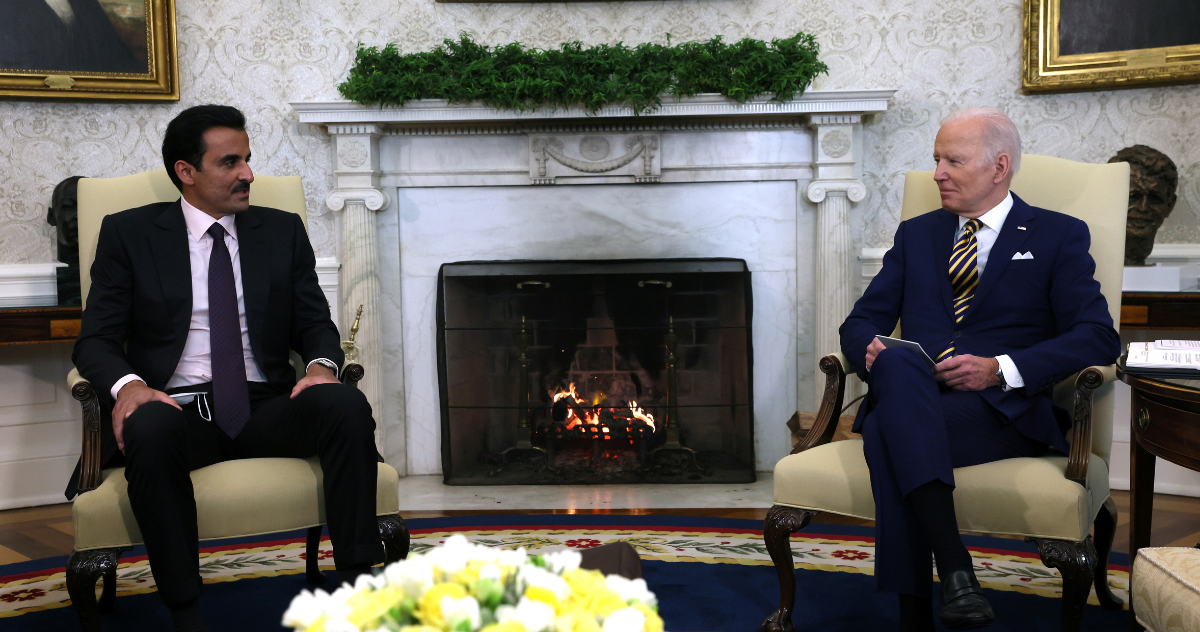Qatar (Transatlantic Today)— On Tuesday, President Joe Biden talked with Qatari Emir Sheikh Tamim Bin Hamad Al-Thani. The discussion was aimed at the release of hostages kept by the Palestinian militant group Hamas and the need for more terrific humanitarian assistance to war-torn Gaza, according to the White House.
Both discussed the “urgent effort to secure” the release of the remaining hostages. It includes American citizens being kept by Hamas in Gaza, along with measures to “facilitate increased and sustained flows of life-saving access to humanitarian assistance to Gaza,” the White House stated on Tuesday.
Qatar, along with Egypt, has acted as a mediator amid Israel’s war with Hamas, which has governed Gaza for 16 years. Both governments played a crucial role in enabling a weeklong cease-fire last month, during which fighting halted, and Hamas released about 100 out of the 240 hostages abducted during the Hamas’s Oct. 7 attack on Israel.
Hamas’s Oct. 7 surprise attack on Israel left about 1,200 people dead, sparking a massive campaign by Israel to eliminate the militant group and its military capacities in Gaza. More than 20,900 Palestinians have been killed amid Israel’s bombardment of Gaza, according to the Gaza Health Ministry.
Negotiations between Israel and Hamas have mainly concentrated on the release of the rest of the hostages, along with permitting more assistance into Gaza, which is faced with declining humanitarian resources.
Egypt, earlier his week, offered a new peace plan to end Israel’s war with Hamas, though it was encountered with mixed responses from both sides.
The plan includes a phased hostage release under an initial cease-fire of up to two weeks and the development of a Palestinian government of professionals to lead the Gaza Strip temporarily and the Israeli-occupied West Bank, The Associated Press (AP) said.
An Egyptian official briefed the AP the plan would concern Egypt and Qatar working with all Palestinian sections, including Hamas and the Palestinian Authority, to reach an arrangement on the proposed government of experts.
The details of the proposed agreement were discussed with Qatar and delivered to Israel, Hamas, the U.S., and European governments earlier this week, the official said.
Israel is encountering increased global pressure to stop fighting in Gaza amid the climbing civilian death toll and exhausting humanitarian systems in the seaside enclave. The Israeli government has primarily resisted calls for a cease-fire, claiming the country must eradicate the threat of Hamas and contain the group from ever ruling Gaza again.
Israeli Prime Minister Benjamin Netanyahu did not instantly remark on the recommendation; he informed associates of his Likud party on Monday he was concentrating on continuing Israel’s offensive, the AP noted.
“We are expanding the fight in the coming days, and this will be a long battle, and it isn’t close to finished,” he said on Monday.
Hamas also didn’t officially react to the proposal. However, top Hamas official Izzat al-Rishq expressed in a statement that the group will not negotiate without a “complete end to the aggression,” the news wire reported. Rishq said Hamas would not agree to a “temporary or partial truce for a short period.”
Meanwhile, the Biden administration has yet to communicate on the potential deal; a person familiar with the matter informed the AP that U.S. officials are in close touch with Egypt and Qatar over the release of more hostages.
The U.S. is one of Israel’s closest partners and has remained firm in its support of the country’s actions to defend itself against Hamas’s terrorist attacks. Confronted with growing pressure from global leaders, Biden and other U.S. officials expressed they have urged Israel to take precautions to underestimate civilian deaths.
Earlier this month, the U.S., along with Israel, was among just ten states to vote against a United Nations nullified resolution calling for a cease-fire in Gaza.
The U.N. Security Council last week passed a resolution calling for improved humanitarian aid to the Gaza Strip and the release of the remaining hostages kept by Hamas. The U.S. did not vote in favor of the resolution but did not stop it.
Last week, U.S. Ambassador to the U.N. Linda Thomas-Greenfield spoke at the body’s Security Council and clarified that addressing the humanitarian crisis in Gaza “needs to remain at the forefront of our agenda.”


























